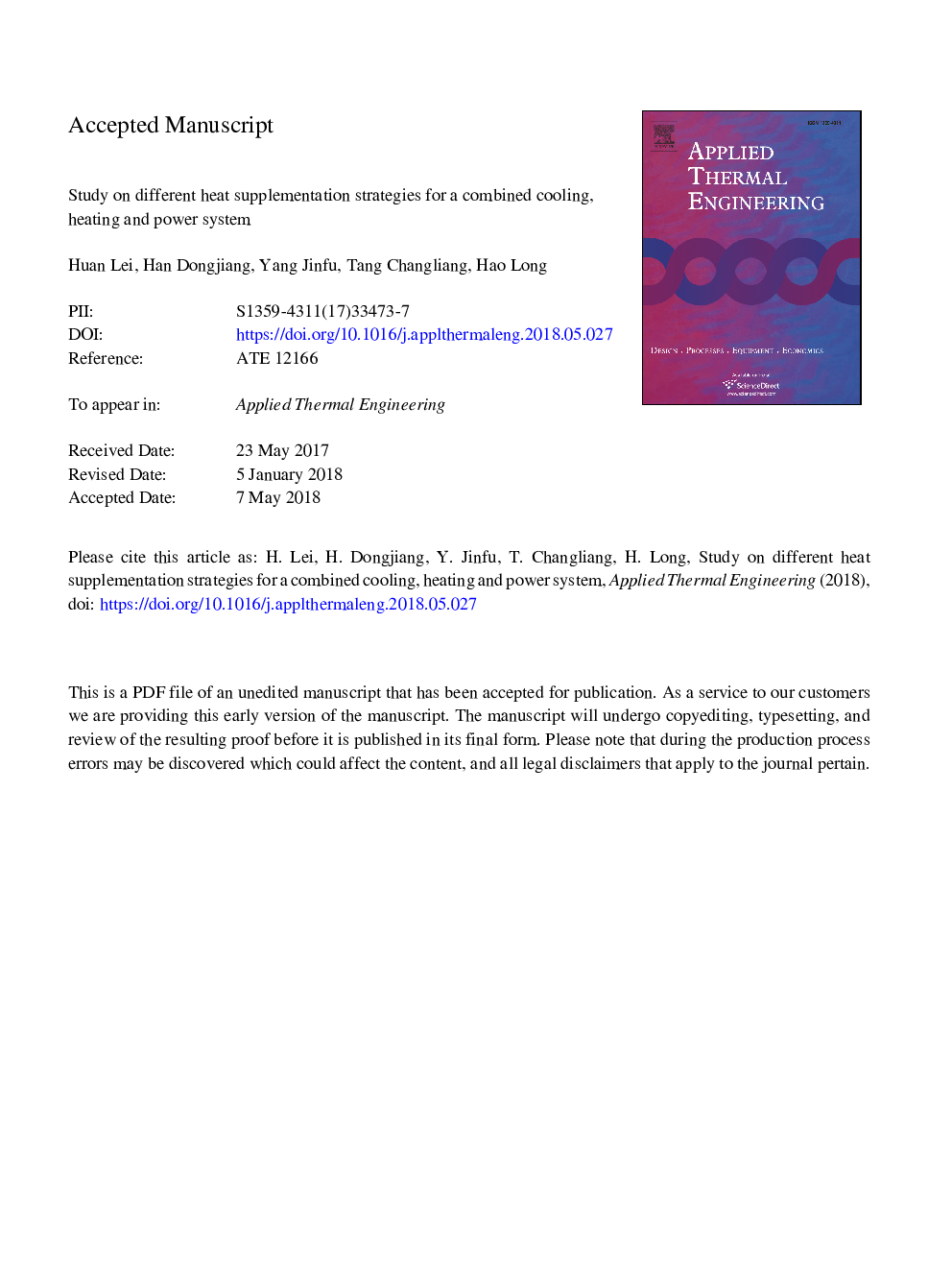| کد مقاله | کد نشریه | سال انتشار | مقاله انگلیسی | نسخه تمام متن |
|---|---|---|---|---|
| 10127290 | 1645050 | 2018 | 46 صفحه PDF | دانلود رایگان |
عنوان انگلیسی مقاله ISI
Study on different heat supplementation strategies for a combined cooling, heating and power system
ترجمه فارسی عنوان
مطالعه در مورد استراتژی های مختلف مکمل گرمایی برای یک سیستم ترکیبی خنک کننده، حرارت و برق
دانلود مقاله + سفارش ترجمه
دانلود مقاله ISI انگلیسی
رایگان برای ایرانیان
کلمات کلیدی
خنک کننده، گرمایش و قدرت ترکیبی، اثر اتصال، استراتژی های مکمل گرمایی، مدل بار جزئی راندمان اگزرژی،
موضوعات مرتبط
مهندسی و علوم پایه
مهندسی شیمی
جریان سیال و فرایندهای انتقال
چکیده انگلیسی
The small CCHP system is adopted by majority of office buildings and markets. The heat supplementation under partial load is a problem for CCHP systems. In this research, a partial load model of a combined cooling, heating and power (CCHP) system was established. The CCHP system's partial load analysis showed that the micro gas turbine (MGT) and the bottom absorption chiller were coupled by flue gas energy. Based on the coupling effects analysis, four different supplementary strategies (load adjustment method (LAM), mass flow first method (MFM), temperature first method (TFM) and maximum coefficient of performance (COP) method (MCOPM)) had been proposed and analyzed when flue gas heat was insufficient. The results showed that the CCHP system's supplemental fuels under MFM, TFM and MCOPM were all less than that under LAM. And the additional fuel under the TFM was the least among the four different strategies. The CCHP system's heating capacity under TFM was smaller than that under MFM and MCOPM, while the CCHP system's primary energy and exergy efficiencies under the TFM were larger than that under MFM and MCOPM, at the same cooling load, when supplement heat was needed. The CCHP system's total exergy destruction under TFM (106.236â¯kW) was smaller than that under the LAM (110.309â¯kW). So when the flue gas heat was insufficient, the TFM supplementation strategy was recommended.
ناشر
Database: Elsevier - ScienceDirect (ساینس دایرکت)
Journal: Applied Thermal Engineering - Volume 144, 5 November 2018, Pages 558-570
Journal: Applied Thermal Engineering - Volume 144, 5 November 2018, Pages 558-570
نویسندگان
Huan Lei, Han Dongjiang, Yang Jinfu, Tang Changliang, Long Hao,
